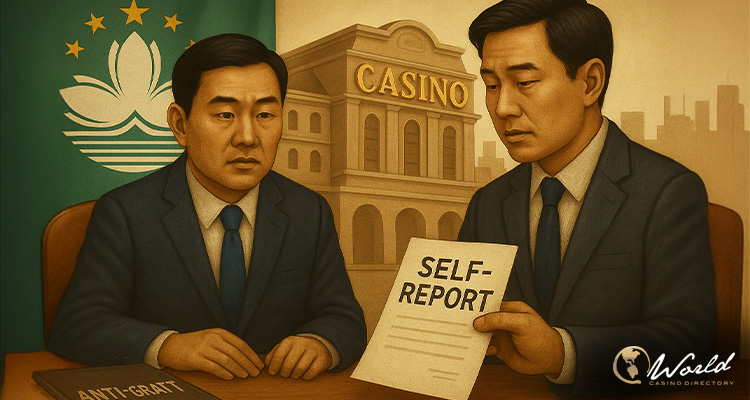The year 2024 marked a noteworthy turning point for Macau’s anti-corruption efforts, especially within its private sector. For the first time, gaming operators actively reported incidents of bribery involving their employees, a significant development in the city’s ongoing fight against corruption. According to the latest annual report from Macau’s Commission Against Corruption (CCAC), the self-reporting by casino operators indicated a shift towards greater corporate accountability, with two bribery cases investigated and forwarded to the Public Prosecutions Office.
Growing trend of private sector accountability:
This move by private enterprises, including integrated resorts, to take action against alleged misconduct represents a societal shift in how such cases are handled. In the past, corruption complaints in the private sector were rare, but the new trend reflects increased internal vigilance and the willingness of businesses to tackle unethical behavior. The CCAC praised this development, calling it a “good start” for the private sector’s involvement in anti-corruption initiatives.
The two cases that were investigated in 2024 highlighted significant breaches in ethics within the gaming industry. One involved a former head chef at a casino resort who allegedly received MOP240,000 (approximately US$29,686) for influencing the recruitment of workers from September 2020 to February 2023. In another case, a former recruitment official allegedly facilitated the hiring of several mainland Chinese workers in exchange for “introduction fees” paid by job seekers. The fees ranged from CNY15,000 (US$2,087) to CNY25,000 (US$3,478), while the third-party agent reportedly pocketed CNY1,000 per successful hire. These actions violated Macau’s Law No. 19/2009 on the Prevention and Suppression of Bribery in the Private Sector.
The self-reporting of these incidents by casino operators marks a turning point, as such transparency and accountability had been scarce in the private sector previously. The CCAC’s report emphasized that this trend represents a promising step forward, highlighting a shift in corporate culture within Macau’s casino-resort sector.
Public sector concerns and ongoing challenges:
While the private sector took strides in addressing corruption, the CCAC also tackled persistent issues in the public sector. A notable case in 2024 involved alleged fraud at the Science and Technology Development Fund, which had been investigated by the commission. Although no criminal behavior was found, the CCAC called for improvements in the fund’s administrative procedures and recommended measures to address weaknesses in supervision.
In addition, the CCAC expressed concern over breaches of basic professional duties within the public sector. Despite a significant decrease in classic corruption cases involving abuse of power, there were still ongoing issues with civil servants violating work ethics, particularly regarding punctuality and attendance. This continued concern underscores the need for sustained vigilance in addressing professional misconduct within government offices.
According to Macau Business, the CCAC’s annual report for 2024 revealed that a total of 293 cases were filed, with 113 investigated by the Anti-Corruption Bureau and 147 by the Macau Ombudsman. Notably, 33 cases involved cooperation with law enforcement agencies outside of Macau, reflecting an expanding regional collaboration in anti-corruption efforts. The report also detailed that 19 cases were forwarded to the Public Prosecutions Office, while many other cases were either archived or referred to different departments due to insufficient evidence.
While the anti-graft agency has made significant progress in tackling corruption, it also faces the challenge of maintaining transparency and ensuring that public and private sectors alike adhere to ethical standards. The commission’s efforts in 2024 underscore an ongoing commitment to fostering a corruption-free environment across Macau’s economy.


